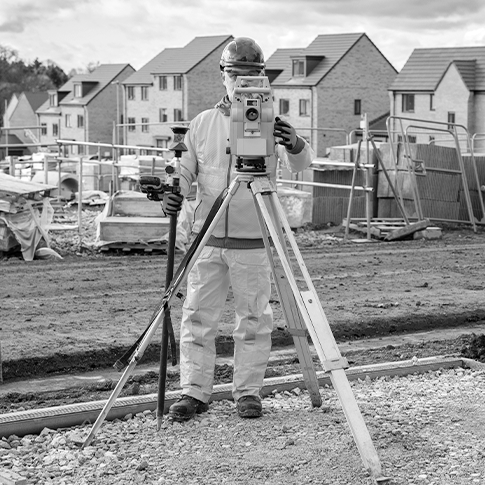VAT on Property | Liability Arising from Property Development and Transactions

The regulations affecting liability for VAT on property transactions vary enormously according to the nature of the activity and whether it relates to property used for domestic or commercial purposes.
Consideration of the potential impact of liability for VAT upon profitability is clearly crucial when formulating any proposals involving property development, building work of any nature and property sales and lettings.
VAT may be charged at ‘zero-rate,’ 5% or 20% according to the nature of both the activity and the classification of the property involved.
Tim Thompson of KANGS comments upon aspects of the potential liability for VAT involving property transactions.
VAT on Residential Property
New developments involving dwellings
As a general rule, residential property is exempt for VAT purposes and any input VAT on building works and materials cannot be recovered by the developer. However, zero rating will normally apply in relation to the:
- construction of a building designed as a dwelling, a number of dwellings or
- conversion of a non-residential building into a building designed as a dwelling or a number of dwellings.
As the zero rating includes the supply of services necessary to the construction of a qualifying building, the builder does not have to charge VAT. However, the professional fees of architects, surveyors and consultants are not allowable.
Accordingly, the developer makes no VAT charge on sales but can reclaim VAT incurred on development costs.
Building conversions/renovations of qualifying dwellings
Building work by way of conversion or renovation does not normally attract ‘zero- rated’ VAT but may qualify for the reduced rate of 5%.
Conversion
To meet the criteria for a conversion, the activity would require a change in the number of dwellings, such as where a large house is divided into flats.
Renovation
This covers the supply of qualifying services to a property, being a dwelling which has been uninhabited for at least two years.
What is a dwelling?
A dwelling is one:
- which consists of self-contained living accommodation,
- where there is no provision for direct internal access from one dwelling place to any other dwelling or part of a dwelling,
- the separate use or disposal of the dwelling is not prevented by any covenant, statutory planning consent or any similar provision,
- statutory planning consent has been granted in relation to that dwelling and its construction or conversion has been completed in accordance with that consent.
A typical family home, whether it be a flat or house, which provides all normal areas for cooking, eating, sleeping etc. would satisfy this description.
Additionally, residential accommodation for:
- school pupils,
- students, other than halls of residence,
- members of the armed forces
also falls within the classification.
Points of note:
- In respect of developments involving mixed-use buildings, such as shops with flats above, only the work on the residential parts will be zero-rated for VAT.
- Where a ‘granny flat’ or ‘annexe’ is built as an addition to an existing house, and which cannot be used or sold separately to the main house, VAT is payable at the standard rate of 20%.
- The construction of a house which cannot be used, or disposed of, separately from a business premises will not be ‘zero- rated.’
- Where a house is substantially, but not fully, demolished in order to comply with planning permission and a new dwelling is constructed incorporating the parts not demolished, the standard rate of VAT is applicable.
VAT on Commercial Property
VAT implications vary significantly between commercial and residential projects.
Where commercial buildings are converted and at least one dwelling is created, but the requirements for ‘zero-rating’ are not met because, for example, the property is rented out on a short lease after conversion, the reduced rate of 5% will apply.
Generally speaking, whilst commercial construction projects usually attract VAT at the standard rate, exceptions exist according to the type of property involved and the discrete circumstances of the development and VAT is charged at various stages of a construction project.
The sale or lease of commercial property is generally exempt from VAT, meaning that the purchaser or tenant does not have to pay VAT. However, commercial property owners have the option to charge VAT at the standard rate applicable at that time.
Listed Buildings
There is no current VAT relief for the majority of Listed Building Works which are rated at the full rate of 20%.
How Can We Assist?
As with every aspect of taxation, the imposition of VAT on property transactions of every nature, including new housing development, commercial development, sales and lettings, is fraught with difficulty and, often, not readily apparent to an inexperienced person.
The Team at KANGS remains alert to the constantly changing requirements of tax legislation and assists clients dealing with tax disputes with HMRC, whether they arise from personal liability or that of any company or other business.
We also advise clients who wish to challenge a VAT Assessment and we can provide expert guidance through the Tax Tribunal appeal process.
If we can assist you, our team would be delighted to hear from you, contact us sing the details below:
Tel: 0333 370 4333
Email: info@kangssolicitors.co.uk
We provide initial no obligation discussion at our three offices in London, Birmingham, and Manchester. Alternatively, discussions can be held through video conferencing or telephone.
Top ranked by legal directories Chambers UK and the Legal 500







